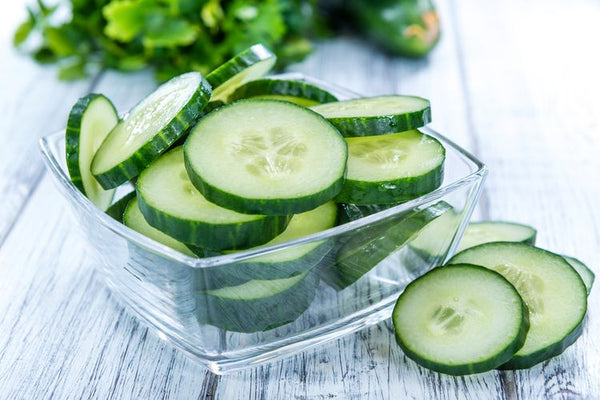
Benefits, Functions and Food Sources of vitamin B2

Have you consumed enough vitamin B today? Vitamin B complex consists of various types of B vitamins that you must pay attention to have adequate nutrition for the body.
In this article, we will discuss one part of the vitamin B complex, namely vitamin B2 or riboflavin which is one of the eight B vitamins that are important for human health.
This vitamin can be found in grains, plants and dairy products.
Vitamin B2 is a type of water-soluble vitamin. All water-soluble vitamins are carried through the bloodstream and if they are not needed or in excess in the body, they are excreted in the urine.
You need to take vitamin B2 every day because the body can only store small amounts while the supply must be released more quickly through urine or sweat.
Benefits of vitamin B2 for the body
Vitamin B2 helps break down protein, fat and carbohydrates so it plays an important role in maintaining the body's energy supply.
Riboflavin helps convert carbohydrates into adenosine triphosphate (ATP). The human body produces ATP from food. Furthermore, ATP produces energy according to the levels needed by the body.
The compound ATP is very important for storing energy in muscles.
Vitamin B is a vitamin that is quite crucial for the body, the same as Vitamin A, with various benefits:
- Maintains mucous membranes in the digestive system
- Maintains liver health
- Converts tryptophan into niacin, an amino acid
- Maintains healthy eyes, nerves, muscles and skin
- Accommodates and activates Vitamin B1, B3 and B6, iron, folic acid.
- Hormone production by the adrenal glands
- Prevents the development of cataracts
- Fetal development especially in areas of vitamin deficiency is common
Some studies have shown that vitamin B2 can help prevent cataracts and migraine headaches, but more research is needed to confirm this.
Food sources of vitamin B2

- Fish, meat and poultry such as turkey, chicken etc.
- Eggs
- Dairy products
- Asparagus
- Avocado
- Cayenne pepper
- Kelp
- Nuts and legumes
- Mushrooms
- Peanuts
- Pumpkin
- Sweet potato Crossed
- vegetables such as broccoli, cabbage, spinach and watercress
- Wheat bread
- Yeast extract
Vitamin B2 Soluble in water so cooking foods containing B2 can cause loss of this vitamin.
How much Vitamin B2 does the body need?
According to Oregon State University the body needs B2 consumed by men aged 19 years and over is 1.3 mg per day and for women is 1.1 mg per day.
During pregnancy women should take 1.4 mg per day and while breastfeeding 1.6 mg per day.
Deficiency of Vitamin B2
Deficiency of this vitamin is a significant risk especially when the diet is poor, because the human body excretes this vitamin continuously so it cannot be stored.
A person who is deficient in vitamin B2 is usually also deficient in other vitamins.
There are two types of riboflavin deficiency:
- Riboflavin deficiency occurs when a person's diet is far from vitamin B2 intake
- B2. Secondary vitamin B2 deficiency occurs for other reasons, perhaps the intestines cannot absorb the vitamin properly or the body cannot use it or because it is quickly excreted.
Symptoms of deficiency include:
- Cracks in the corners of the mouth
- lips
- Dry skin
- Inflammation of the lining of the mouth
- Sprue
- Red lips
- Sore throat
- Fluid in the mucous membranes
- Iron deficiency anemia
- Eyes sensitive to light itchy watery and red
Risk of vitamin B2
Usually vitamin B2 is considered safe, because it can not result in an overdose, because the body will excrete substances that are not needed through the urine.
However, it is important to see a doctor before taking any supplements, especially as these can interfere with the effects of other medications.
Supplements interact with other medications and supplements can affect the effectiveness of some medications, such as anticholinergic drugs and tetracyclines.
Doctors sometimes recommend supplements that can actually interfere with the absorption of riboflavin.
Some:
- Tricyclic antidepressants, such as imipramine or tofranil
- antipsychotic drugs such as chlorpromazine or thorazine
- Methotrexate is useful for cancer and autoimmune diseases such as rheumatoid arthritis
- Phenytoin or dilantin is used to control seizures
- Thiazide diuretics or pills water
Doxorubicin is a drug used in cancer therapy that can deplete riboflavin levels and riboflavin can affect how doxorubicin works.
Thus, this article discusses Benefits, Functions and Food Sources of vitamin B2. To prevent the balance of B vitamins, it is recommended by medical professionals to use vitamin B complex if supplements are needed. Hope it is useful.




